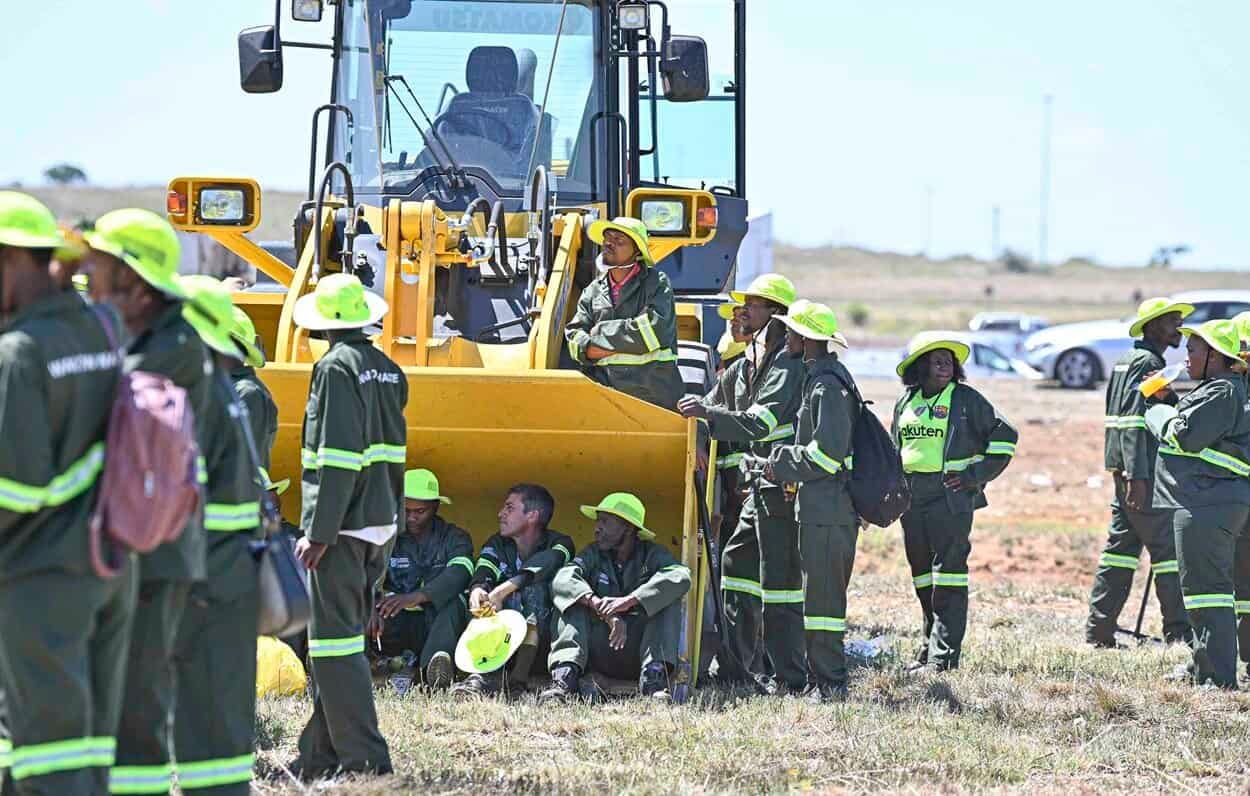Unemployment cuts deepest in rural South Africa. Public Employment Programmes offer income, skills and hope where tenders failed.

In too many of South Africa’s rural towns, mornings begin with waiting. Young people wake up and linger on street corners, scanning their phones, hoping for an SMS about work that never comes.
Parents stretch social grants to cover not just their own households, but extended families. The sense of hopelessness is thick – but it doesn’t have to be this way.
Unemployment is South Africa’s deepest wound and it cuts hardest in rural areas. There, young people and women carry the burden of an economy that has left them behind.
For decades, we’ve tried to patch this wound with tenders and contracts, enriching a few while leaving communities stranded.
It is time for government to take a different path – one rooted not in outsourcing, but in dignity: scaling up Public Employment Programmes (Peps).
Since 1994, government has relied heavily on private contractors and outsourcing to deliver services and infrastructure. The assumption was that the market would bring efficiency and accountability.
ALSO READ: PYEI created 234 000 ‘opportunities’ for youth to get jobs in three months
Instead, we got inflated costs, uneven delivery and endemic corruption.
The result is stark: rural communities are littered with halfbuilt schools, pothole-ridden roads and clinics with broken water systems – while unemployment remains stubbornly high.
Outsourcing has created jobs for intermediaries, not for the people most in need.
In this sense, “development” has too often meant siphoning resources out of poor communities instead of building capacity within them. The dignity of labour has been eroded and trust in government has worn thin.
Peps offer a different way forward. At their best, they are not temporary “workfare” schemes, but an investment in people and places.
Properly designed, Peps deliver a triple dividend: they provide immediate income, they build portable skills and they restore public assets that otherwise crumble from neglect.
ALSO READ: Artificial diamonds threaten South Africa’s mining sector
Consider what this could look like in practice:
- Schools refurbished not by contractors from outside, but by local youth trained as carpenters and bricklayers;
- Rural roads maintained by residents, improving mobility and economic access;
- Community safety patrols, run in partnership with the police, making villages safer for women and children; and
- Large-scale food gardens established in townships and villages, directly tackling hunger and malnutrition.
These are not speculative ideas. They are interventions that Peps have already piloted – from the Community Work Programme to Expanded Public Works – but never at the scale or permanence required.
The lesson is clear: with real investment, these programmes can transform the social and economic fabric of rural South Africa.
Rural areas remain South Africa’s forgotten economy. While cities attract investment, rural towns survive on social grants and remittances. Yet they hold immense potential.
By embedding Peps into a coherent development strategy government could spark renewal from the ground up.
ALSO READ: Ford to retrench nearly 500 workers in Pretoria and Eastern Cape
Peps should not just hand out wages; it should embed structured training in trades such as plumbing, carpentry, renewable energy and agriculture.
The skills acquired meet immediate needs but also open pathways for self-employment and small business development. In other words, Peps can act as an incubator for entrepreneurship, not just a stopgap for unemployment.
The urgency is political as much as economic. The 2024 election results revealed deep frustration among unemployed voters in rural communities.
Many are not just waiting for handouts; they are demanding inclusion. They want work that is real, dignified and meaningful.
Government cannot respond with tinkering at the edges. What is required is a guarantee: that all public employment workers earn at least the national minimum wage. And an end to the overreliance on tenders that hollow out public value. Resources must flow directly into communities, not through layers of contractors.
When we speak of “unemployment”, it is easy to reduce people to statistics. But behind each percentage point are lives diminished.
ALSO READ: Will Checkers’ self-service checkout worsen unemployment?
The young woman who spends her 20s in enforced idleness. The father who feels stripped of purpose. The graduate who watches her skills atrophy while waiting for a job that never comes. The child who grows up in a home where work is absent, and despair the norm.
The cost is not just economic; it is social and psychological. Work is more than income.
It is dignity, connection and a sense of belonging. Deny that, and you erode the foundations of society.
This is why public employment must not be treated as a temporary safety net. It must be institutionalised as a permanent feature of South Africa’s development trajectory. Just as we invest in roads and energy, we must invest in people.
Critics will argue that South Africa cannot afford large-scale public employment.
But this question must be inverted: can South Africa afford not to?
ALSO READ: Sassa has thousands of empty job posts: Here’s why and how many vacancies there are
Every rand spent on public employment circulates back into local economies. Every skill learned adds to the productive base of the country.
Every repaired school or road saves money in the long term. And every person lifted from despair to dignity strengthens democracy.
We are at a crossroads. Either we continue with the broken cycle of tenders and exclusion, or we build a new pathway where public employment becomes the backbone of rural renewal.






